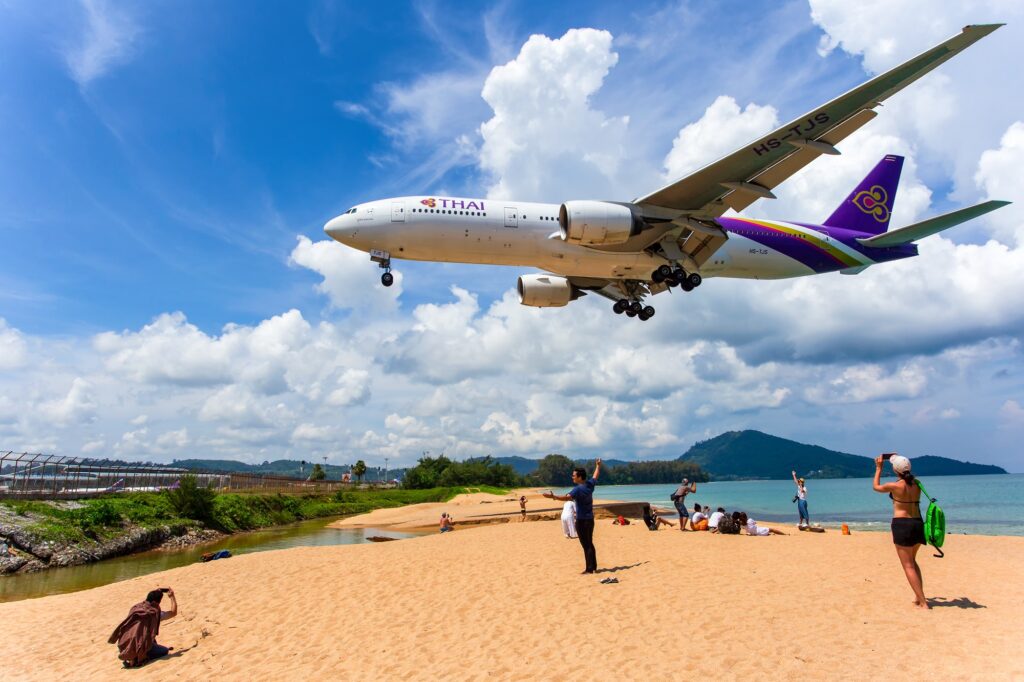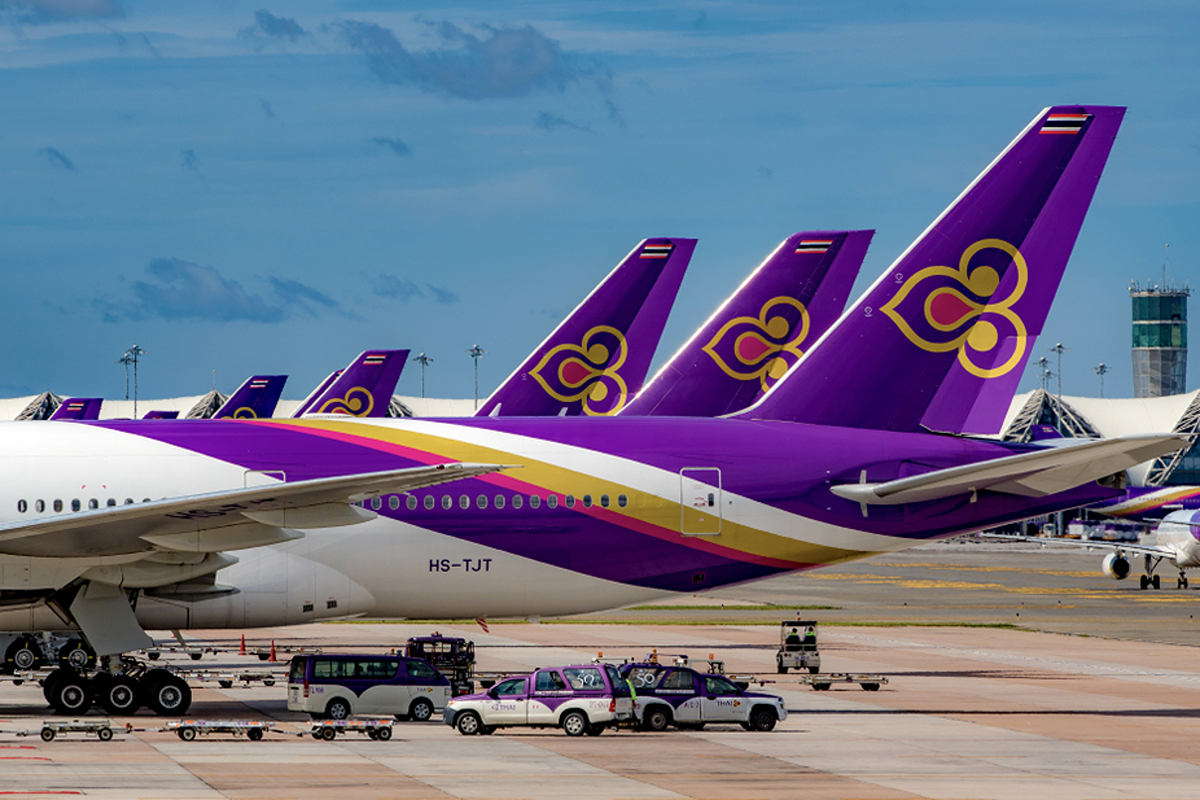Thai Airways has revealed it will reintroduce a premium economy cabin as part of its growth plans as the carrier looks to exit its restructuring program in 2025. Alongside bringing back a refreshed mid-class product, the company’s plans also included offering passengers an updated business class offering and introducing new fuel-efficient aircraft with a view to sustained profitability.
The airline will be bringing back a premium economy offering in response to what it describes as “the growing demand for affordable yet comfortable air travel.” The carrier previously offered premium economy on a select number of its Boeing 777-300ERs and previously operated Airbus A340-600s which have now left the fleet. The carrier also harbored plans to roll out the product on its now-withdrawn A380s.
However, the product was dropped as part of a previous restructuring program to turn around growing losses at the airline. The strategy to bring premium economy back comes at a time when many international airlines are either introducing their own incarnations of the genre or are updating their existing premium economy offerings.
Emirates, the world’s largest international airline introduced premium economy in 2023 and has been reporting huge successes on the routes where the product has appeared so far. Elsewhere, Cathay Pacific has been increasing the size of its premium economy cabin on several of its Boeing 777s by around 50%, a strong indicator that demand for high-comfort levels among economy class travelers continues to build.
The company’s plans for the reintroduction of premium economy were revealed at a special event held by the airline under the “Fly for New Pride” slogan. At the event, Chai Eiamsiri, the CEO of Thai Airways, also announced that the carrier will carry out a significant upgrade to the business class cabins on its 17-strong fleet of 777-300ERs. It is thought that this will see the same seats that currently feature on the airline’s Boeing 787 long-haul fleet. The company will also look at revamping its First Class offering, according to Chai.

Further into the future, Thai Airways is also planning to introduce an all-new business class seat on its incoming fleet of 45 Boeing 787-9 Dreamliners, the first of which is due to be delivered to the Bangkok-based carrier in 2027. This move is targeted at keeping pace with other Asia-Pacific carriers who have been updating their own business class products since the pandemic.
All these strategies come as the company plans to exit its restructuring program by the second quarter of 2025. The ailing airline filed for bankruptcy protection in 2020 due to the fallout of the COVID-19 pandemic and a resulting drop in passenger traffic. As part of that plan, the carrier is undertaking a capital restructuring process by converting existing creditor debt into capital and offering additional shares to existing shareholders to bolster the airline’s capital position and prepare it for a potential relisting on the Thai bourse.
During the restructuring program, Thai has streamlined its operations, cut its employee numbers, dropped older aircraft from its fleet (including its six A380s and 18 Boeing 747-400s), and merged its Thai Smile regional low-cost division back into the mainline operation. These measures have seen the carrier return to profitability and become far more optimistic about its future, led by a new board of directors.
Other measures being taken by the airline include targeting transit passengers using the airline’s hubs by boosting connectivity, seeking out new partnerships to enhance the company’s finances, and diversifying revenue sources to reduce dependence on its core airline business.
“With these strategies, Thai Airways will be able to operate agilely, cope with challenges, and adapt to changes quickly, and be able to develop and innovate to support new business opportunities for strong and sustainable growth in the future,” Chai concluded.

